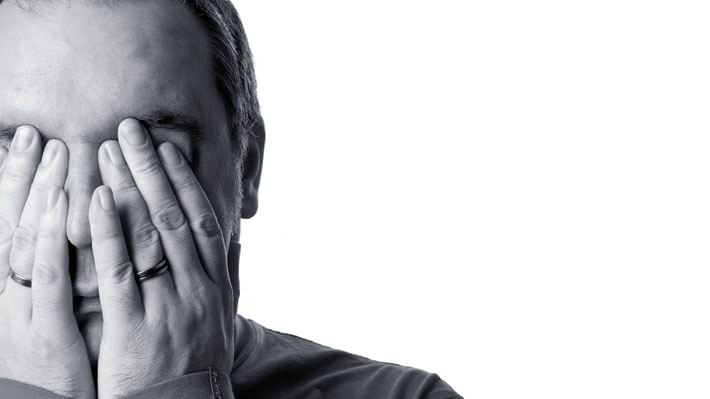
Stress causes Cancer
Written by: Dr. Adam McLeod , ND
Everyday in my practice I see cancer patients who feel that there is a very strong emotional source to their cancer. Patients will often be able to directly connect the formation of their cancer with a stressful event in their life. This is not an imaginary connection, there are biological reasons why emotional stress can trigger the formation of cancer.
Stress can cause cancer. It is important to point out that this is not a hypothetical concept. This is a statement that is well supported by scientific evidence1,2,3. The link between cancer and stress is well established and is not debated by the scientific community. Many people are not aware how significant this connection is and often this connection is disregarded by medical doctors, despite the body of evidence.
There are a number of different biological reasons why stress inhibits the immune system in its fight against cancer. Natural Killer cells are essential in resisting the progression and metastatic spread of tumours once they have developed4. It is well documented that the activity of these crucial cells decreases significantly with stress5. In other words, the cells that patrol your body looking for abnormal cells are less active when you are under stress.
A key component to the development of cancer is mutations in the DNA. A number of well controlled studies have shown that cells are less efficient at repairing DNA damage when a patient is stressed. Patients who are more depressed show significantly poorer repair of damaged DNA compared to their less depressed counterparts6. This is significant because the mutations that drive the initiation and development of cancer are not repaired as effectively in a patient under stressful conditions.
In addition to the effects of stress on DNA repair, additional research has shown that apoptosis is inhibited by stress7. When a cell begins to turn cancerous, the cell will undergo what is called programmed cell death (also known as apoptosis). In other words, when a cell begins to get too abnormal it will commit suicide. This is one of the most fundamental defense mechanisms that our body has to fight the development of cancer. When this process is inhibited, clearly the risk for developing cancer is higher.
The good news is that you can help your body fight cancer by reducing stress and focusing your intentions on healing. One of the most comprehensive intervention studies in cancer research evaluated the effects of stress management techniques, such as relaxation on cancer recurrence following removal of malignant melanoma9. Not only did the relaxed group experience reduced psychological distress, they also had more active immune systems. A 6-year follow up of these patients showed a trend toward greater recurrence and higher mortality rates in the control group, compared to the relaxed group8. The bottom line is that patients who focus on reducing stress and focusing their minds on healing not only have a better prognosis, they also have lower rates of developing cancer in the first place. Given what we know about the connection between immune function and stress, this conclusion should not be surprising.
When fighting cancer it is important to use every tool at your disposal to increase the chances of a successful recovery. The immune system must be strong to fight off any serious disease. Our minds can dramatically influence how our cells respond to stress and this is intimately connected to the function of the immune system. We all need to take control of our health and use this connection to our advantage. By reducing stress and focusing our minds on healing we will live longer and happier lives10. This is a powerful tool that we can all use to our advantage.
Dr. Adam McLeod is a Naturopathic Doctor (ND), BSc. (Hon) Molecular biology, First Nations Healer, Motivational Speaker and International Best Selling Author. He currently practices at his clinic in Vancouver, British Columbia where he focuses on integrative cancer care. https://www.yaletownnaturopathic.com
References:
1) Bovberj DH. Physchoneuroimmunology: Implications for oncology? Cancer 1991; 67: 828-832.
2) Spiegel D, Kato PM. Psychosocial influences on cancer incidence and progression. Harvard Rev Psychiatry 1996; 4: 10-26.
3) Andersen BL, Farrar WB, Golden-Kreutz D et al. Stress and immune responses after surgical treatment for regional breast cancer. J Natl Cancer Inst 1998; 90: 30-36.
4) Herberman RB. Immunotherapy. In Lenhard RE Jr, Osteen RT, Gansler T (eds): Clinical Oncology. Atlanta, GA: American Cancer Society 2001; 215-223.
5) Zorrilla EP, Luborsky L, MacKay JR et al. The relationship of depression and stressors to immunological assays: A meta-analytic review. Brain Behav Immun 2001; 15: 199-226.
6) Kiecolt-Glaser JK, Stephen RE, Lipetz PD et al. Distress and DNA repair in human lymphocytes. J Behav Med 1985; 8: 311-320.
7) Tomei LD, Kiecolt-Glaser JK, Kennedy S, Glaser R. Psychological stress and phorbol ester inhibition of radiation-induced apoptosis in human PBLs. Psychiatry Res 1990; 33: 59-71.
8) Fawzy IF, Fawzy NW, Hyun CS et al. Malignant melanoma: effects of an early structured psychiatric intervention, coping and affective state on recurrence and survival 6 years later. Arch Gen Psychiatry 1993; 50: 681-689.
9) Fawnzy IF, Kemeny ME, Fawzy NW et al. A structured psychiatric intervention for cancer patients. Arch Gen Psychiatry 1990; 47: 729-735.
10) Veenhoven et al. Healthy happiness: effects of happiness on physical health and the consequences for preventative health care. Journal of Happiness Studies, 2008; 9(3): 449.






Leave a Reply
You must be logged in to post a comment.